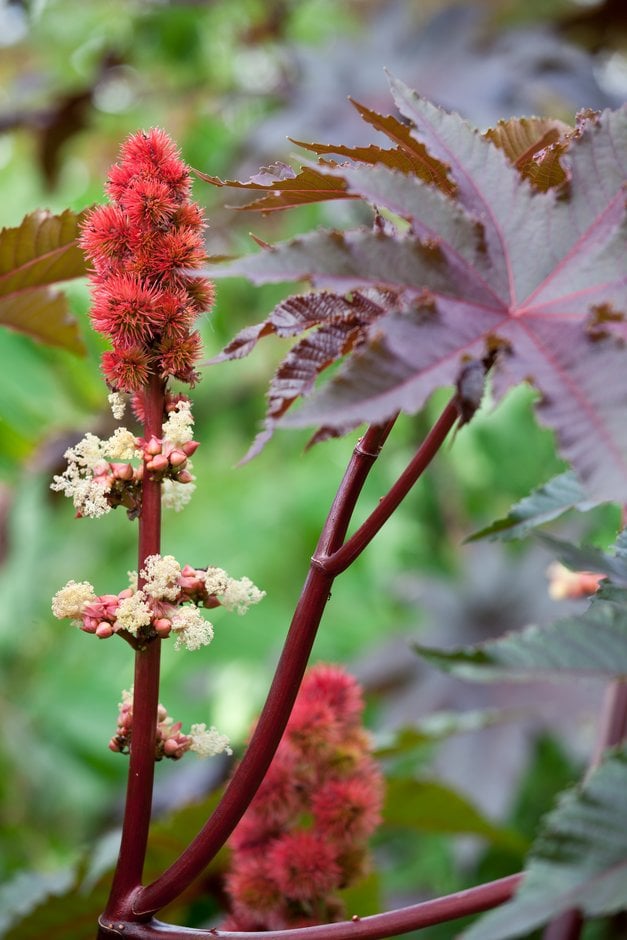Ricinus communis
castor oil plant
An erect, branching shrub to 1.5m when grown as an annual, with very deeply 5- to 12-lobed, glossy, green, red or bronze leaves to 30cm long, held on red stems. Insignificant yellow flowers are produced in summer; these are followed by bright red, spherical, spiky seed capsules
Other common names
castor beanhands of Christ
see moreJonah's gourd
man's motherwort
mole bean
mole plant
oil plant
palma-Christi
palms of Christ
steadfast
Size
Ultimate height
1.5–2.5 metresTime to ultimate height
1 yearUltimate spread
0.5–1 metresGrowing conditions
Moisture
Moist but well–drainedpH
Acid, Alkaline, NeutralColour & scent
| Stem | Flower | Foliage | Fruit | |
| Spring | Green Bronze Red | |||
|---|---|---|---|---|
| Summer | Yellow | Green Bronze Red | ||
| Autumn | Green Bronze Red | |||
| Winter |
Position
- Full sun
Aspect
East–facing or South–facing or West–facing
Exposure
Sheltered Hardiness
H2Botanical details
- Family
- Euphorbiaceae
- Native to GB / Ireland
- No
- Foliage
- Evergreen
- Habit
- Columnar upright
- Potentially harmful
- TOXIC if eaten, wear gloves and other protective equipment when handling TOXIC to pets if eaten - see the HTA guide to potentially harmful plants for further information and useful contact numbers
- Genus
Ricinus is a fast-growing evergreen shrub, often grown as an annual, with large, palmately lobed leaves and dense spikes of small flowers, followed by prickly seed capsules
- Name status
Correct
- Plant range
- N.E. Africa to W. Asia
How to grow
Cultivation
Plant out after the last frosts in fertile, humus-rich, well-drained soil in full sun. Stake in exposed sites
Propagation
Propagate by sowing seed in spring, singly into 9cm pots
Suggested planting locations and garden types
- Mediterranean climate plants
- Patio and container plants
- Sub-tropical
- Bedding
- Conservatory and greenhouse
- Flower borders and beds
Pruning
No pruning required
Pests
May be susceptible to glasshouse red spider mite
Diseases
May be susceptible to honey fungus (rarely)
Get involved
The Royal Horticultural Society is the UK’s leading gardening charity. We aim to enrich everyone’s life through plants, and make the UK a greener and more beautiful place.
